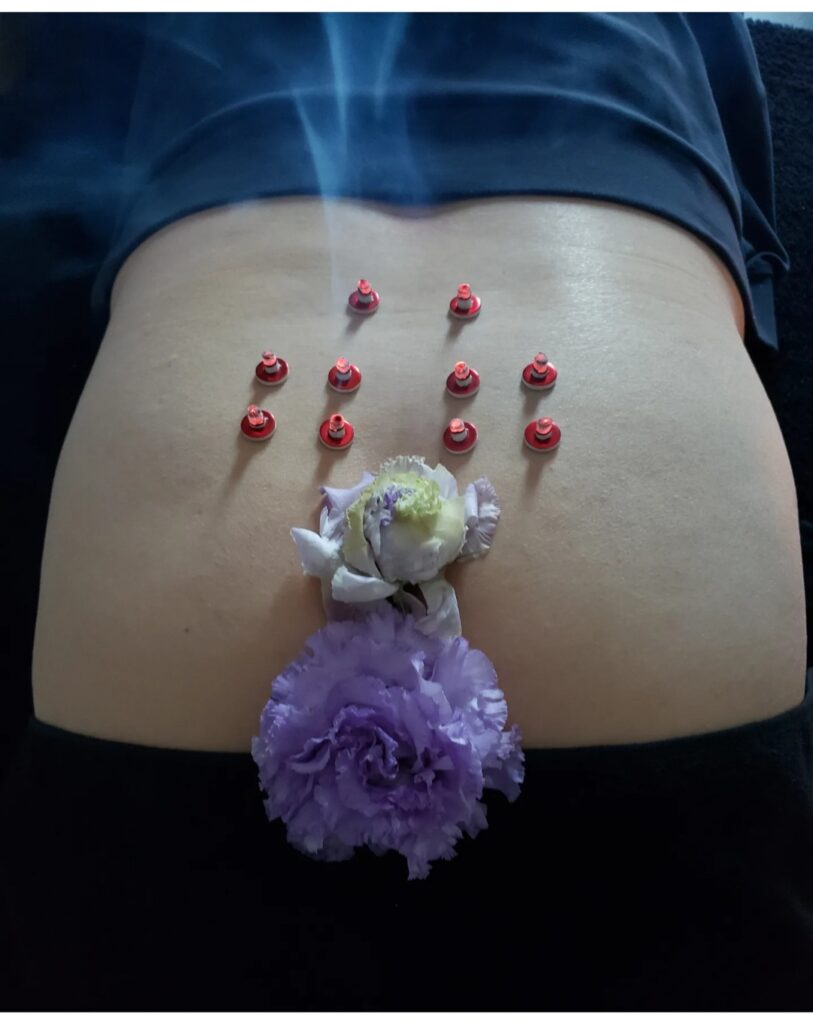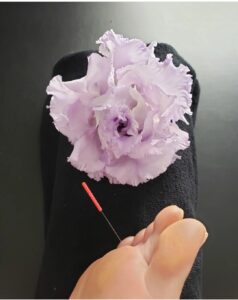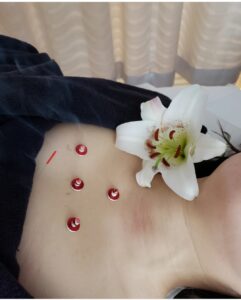夜間尿
nocturnal emission of urine nocturnal urination
夜間尿については、いくつかの原因があります。夜間の尿量が増える、膀胱に溜める容量が減るなどが上げられます。そのうえ、夜間尿のたびに、睡眠の質が低下して熟睡度が浅くなります。実際には、単体ではなく、これらの原因がいくつか重なり夜間頻尿を引き起こしていると考えられています。夜間尿は、昼間に比べると薄い色の尿が出るようになります。夜間にトイレにいきたくなる入る理由としては、抗利尿ホルモンの分泌低下で、若いころは睡眠時に尿を濃縮するホルモン(抗利尿ホルモン)が脳下垂体というところから分泌されて尿の量を減らしています。年齢とともにこのホルモンの分泌が減り、夜間の尿の濃縮がうまくできなくなると夜間にトイレに行きたくなります。また、膀胱に溜める容量が減ることも理由になります。膀胱は正常で300ml前後の尿をためて、尿がたまってくると膀胱内の圧力(膀胱内圧)が上がって脳に信号を送ります。脳は、その信号が無視できるレベルかを判断して尿意として感じるかどうかを決めています。膀胱の筋肉の柔軟性が保たれていれば膀胱内圧の上昇はゆっくりなので、脳は250mlくらいまでは尿意を意識しません。ところが、加齢や膀胱の血流低下によって膀胱の柔軟性が低下すると膀胱内圧の上昇が急になって尿量が少なくても尿意を感じるようになります。これが膀胱の容量低下につながり、夜間頻尿を引き起こします。夜間尿は睡眠を妨げる原因となります。若いころと比べて日中もそれほど運動もしていませんから、 高齢になるほど睡眠は浅くなります。 一般的に就寝後3時間を過ぎれば眠りは浅くなりますが、眠りが浅くなったタイミングに弱い尿意が重なるとトイレに行きたくなるようになります。鍼灸治療では、血行を促進して膀胱の血流を改善し、膀胱の柔軟性を上げて、膀胱の機能を改善させます。蓄尿障害の原因にはほかにも、男性では前立腺肥大などがあります。女性の蓄尿障害の原因には神経因性膀胱、過活動膀胱、加齢などが理由となります。夜間頻尿から睡眠不足になる方も多く、QOL(生活の質)が低下しするだけでなく、夜中にトイレに行くことで、高齢者は、足元がふらつき、自宅内での転倒につながり、大腿骨頸部骨折などの、寝たきりになり、いっきに老化が進んでしまい、認知症になってしまうこともあります。]
There are several causes for nocturnal enuresis. These include an increase in the amount of urine at night and a decrease in the capacity of the bladder to hold it. In addition, each nocturnal urination results in decreased quality of sleep and less sound sleep. In fact, it is believed that several of these causes, rather than a single one, combine to cause nocturia. Nocturia causes urine to be lighter in color than during the day. The reason for the need to go to the bathroom at night is the decreased secretion of antidiuretic hormone. When we are young, the pituitary gland secretes a hormone (antidiuretic hormone) that concentrates urine during sleep, thereby reducing the amount of urine. As we age, the secretion of this hormone decreases, and when it cannot concentrate urine properly at night, we feel the need to go to the bathroom at night. Another reason is that the capacity of the bladder is reduced. The bladder normally holds around 300 ml of urine, and as urine accumulates, the pressure inside the bladder (bladder internal pressure) increases, sending a signal to the brain. The brain determines whether the signal is negligible and decides whether it is felt as a desire to urinate. If the bladder muscles remain flexible, the rise in bladder pressure is slow, so the brain is not aware of the urge to urinate until about 250 ml. However, if the flexibility of the bladder decreases due to aging or decreased blood flow to the bladder, the rise in bladder pressure becomes rapid and the person feels the urge to urinate even if the amount of urine is small. This leads to a decrease in bladder capacity, causing nocturia. Nocturia can disturb sleep. Since we do not exercise as much during the day as we did when we were younger, the older we get, the less sleep we get. Sleep generally becomes less restful after three hours of sleep, and a weak urge to urinate combined with the timing of sleeplessness can lead to a need to go to the restroom. Acupuncture improves bladder function by stimulating blood circulation, improving blood flow to the bladder, and increasing the flexibility of the bladder. Other causes of dysuria include an enlarged prostate in men. Neurogenic bladder, overactive bladder, and aging are other reasons for dysuria in women. Frequent nocturia at night can cause many people to lose sleep, which not only reduces quality of life (QOL), but also makes elderly people unsteady on their feet when they go to the bathroom at night, leading to falls in the home, fractures of the femoral neck, bedridden patients, and rapid aging, which can even lead to dementia.



